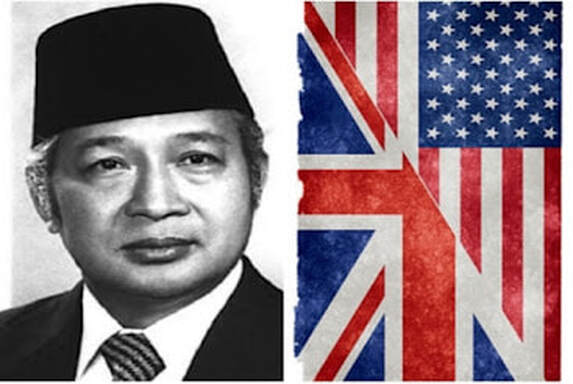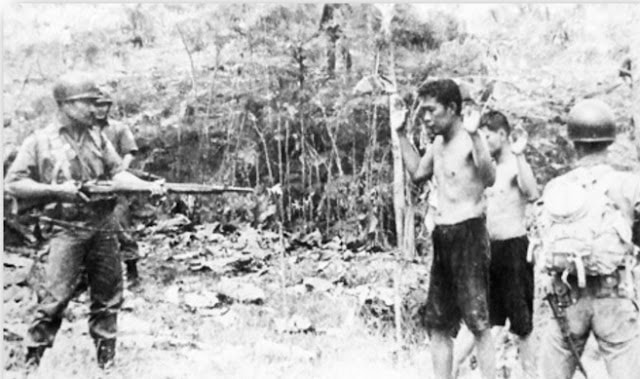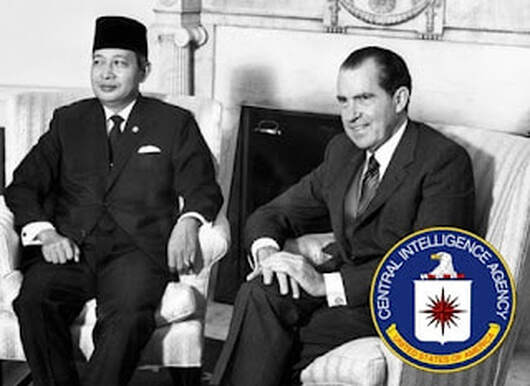|
1/3/2023 The forgotten holocaust: The 1965-66 massacre against Indonesia's communists By: Nikos MottasRead NowWithout any doubt, the WWII Holocaust and the 1915 Armenian genocide consist the two largest mass slaughters of the 20th century. They are crimes which must never be erased from the collective memory of the peoples, no matter how many decades will pass. However, there are also less known sides of History, the “forgotten” holocausts to which the bourgeois historiography has given little importance, either by downgrading them as insignificant details of world history or by distorting their true dimensions. A major example of such a “forgotten” holocaust is the mass slaughter of the communists in Indonesia by Suharto's dictatorship during the 1965-66. The criminal called General Suharto was the man who, with the tolerance and silence of the U.S. and British governments, was responsible for one of the most barbaric bloodshed of the previous century: the mass slaughter of more than 1,000,000 people, mostly communists, members and supporters of the Communist Party of Indonesia [1]. If we want to have a comprehensive image of the social and political conditions that led to the 1965-66 massacre, we must refer to the historical background of developments in Indonesia after the end of Second World War. These developments are related to the role of the British and Dutch imperialists, the conditions under which the independence of the Republic of Indonesia took place, the formation of the class struggle in the country and, of course, the position of Indonesia in the post-WWII imperialist plans which led to the active involvement of the US in the domestic political processes. In the mid of 1960s, the sharpening of the intra-bourgeois contradictions (with the steady interference of US-British governments) led to a series of military coups and counter-coups that ultimately resulted to the overthrow of the elected president Sukarno. In the morning of October 2, 1965, numerous military vehicles were patrolling at the streets of Jakarta in order to capture the insurgents and lead them to prison. A day earlier, a failed coup attempt had been organised by the commander of the presidential guard Colonel Untung. From his side, in a message transmitted via radio, the Colonel had justified the coup attempt by arguing that its role was to prevent a conspiracy planned by the CIA and army officials to overthrow President Sukarno. The army crushed the failed coup's insurgents, with a General called Suharto playing a decisive role. This man would subsequently override Sukarno's leadership thus becoming the new powerful leader of the country. Suharto and his imperialist allies point the Communist Party of Indonesia as the source of the failed coup – after all, the well-organised and popular Communist Party had played a leading role in the anticolonial struggle and had significant influence in Sukarno's policies. The rise of General Suharto- a man who had the support of the US imperialists- in Indonesia's leadership led to unprecedented violent persecutions against communists, including mass killings, executions, tortures and every kind of barbaric act. Even the CIA had admitted in a subsequent report that the 1965-66 events were “one of the worst mass murders of the 20th century” [2]. Of course, both the CIA and the British intelligence services had an active role in the massacre by supporting the Suharto regime. Information about the role of the governments of the United States, Britain and Australia in the anticommunist holocaust of Indonesia were unveiled years later. On May 17, 1990, based on testimonies by personnel who had worked at the US embassy in Jakarta during the 1960s, an article by the States News Service of Washington DC reported that the US embassy had provided Suharto regime lists with over 5,000 names of communists and supporters of the Communist Party [3]. The role of the imperialists in the Indonesia massacre has been confirmed by professors and researchers. For example, Professor Brad Simpson of Princeton University and author of “Economists with Guns: Authoritarian Development and US-Indonesian Relations, 1960-1968”, has said that the U.S and British governments did “everything in their power” to ensure that the Indonesian army would carry out the mass killings [4]. The massacre against the communists in Indonesia was followed by an organised plan for the entry of foreign monopoly capital in the country. According to the documentary “The New Rulers of the World” (2001) by Australian journalist and researcher John Pilger, the dictatorial regime of Suharto proceeded to business deals with known monopoly and banking groups such as General Motors, Daimler-Benz, Chase Manhtattan Bank, Siemens, Standard Oil etc. Imperialism cares to erase its bloody past in order to safeguard its future The massacre of the communists in Indonesia by the authoritarian Suharto regime, with the support and tolerance of the US-British imperialists, consists one of the darkest pages of the 20th century. It consists a deliberately “forgotten” holocaust that the bourgeois propaganda tries to downgrade as a “collateral damage” of the Cold War. They try to downgrade the historical significance of the 1965-66 massacre of Indonesia's communists because it is one more example that exposes imperialist brutality. Imperialism tries to erase its bloody past in order to safeguard its future. For that reason, the imperialists distort History in every possible way. Because they know the actual power that the working class, the proletariat in every country, has. That is why the working people, the people, must know their history and fight against distortion and oblivion, in order to have a powerful weapon in the struggle against the big enemy of humanity which is the rotten exploitative system that generates barbarity, poverty and wars. NOTES: [1] The Communist Party of Indonesia, the first one established in Asia (1920), reached during the 1960s a significant party strength with approximately 3,000,000 members, especially in the Java region. However, opportunist political choices by its leadership led to the subsequent weakening of the party ties with broader masses. Despite its organisational strength and the extraordinary large number of its members, the CPI didn't avoid the trap that had been set by both its domestic enemies and their imperialist allies. [2] Blumenthal, T.L.H. McCormack (Ed.), The Legacy of Nuremberg: Civilising Infuence or Institutionalised Vengeance?. International Humanitarian Law Services, Martinus Nijhoff. [3] I.A. Tie Asserted in Indonesia Purge, The New York Times, July 12, 1990. [4] The 1965-1966 Indonesian Killings Revisited, Conference at the National University of Singapore, 17-19 June 2009. AuthorNikos Mottas is the Editor-in-Chief of In Defense of Communism. This article was republished from In Defense of Communism. Archives January 2023
0 Comments
Leave a Reply. |
Details
Archives
July 2024
Categories
All
|



 RSS Feed
RSS Feed